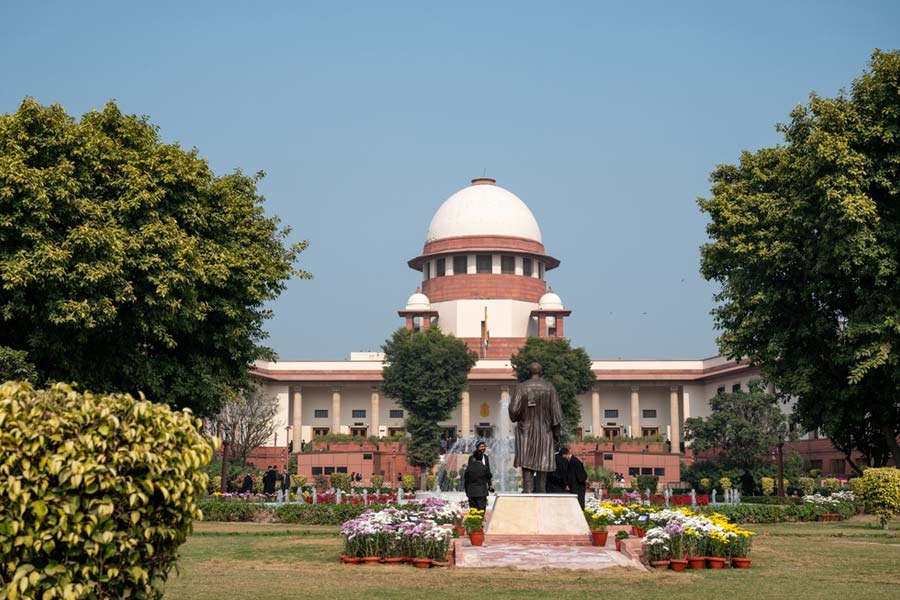The Supreme Court has held that police cannot be granted “unfettered discretion” to invoke stringent provisions like the Uttar Pradesh Gangsters & Anti-Social Activities (Prevention) Act, 1986, as it would violate a citizen’s fundamental right to life and liberty guaranteed under Article 21 of the Constitution.
The court passed the ruling while quashing the FIR registered in Agra district under the Act by the UP police against Jay Kishan, Kuldeep Katara and Krishna Katara, who pleaded that they had been falsely implicated in the case relating to a civil property dispute which was pending before a civil court.
The special act entails punishment up to 10 years, attachment of properties, and in-camera trial in special courts constituted for the purpose.
“Ultimately, the right to life and liberty guaranteed under Article 21 of the Constitution of India cannot be overlooked only due to the reason that criminal cases have been registered against a person. It would be plainly unwise to accord any unfettered discretion to the authorities concerned when it comes to invoking the Act. The more stringent or penal a provision, greater the emphasis and requirement for it to be strictly construed,” a bench of Justice Sudhanshu Dhulia and Justice Ahsanuddin Amanullah said in a judgment.
The bench passed the judgment while allowing an appeal filed by the trio challenging the refusal of Allahabad High Court to quash the FIR against the accused persons.
According to the FIR, the appellants, who were allegedly part of a gang, had a criminal history and the FIR had been registered to restrict the activities after obtaining prior approval from the Agra commissioner of police.
The appellants had contended that three predicate FIRs were related to a property dispute between two families and the allegations made were civil and hence the proceedings under the Act were liable to be quashed.

